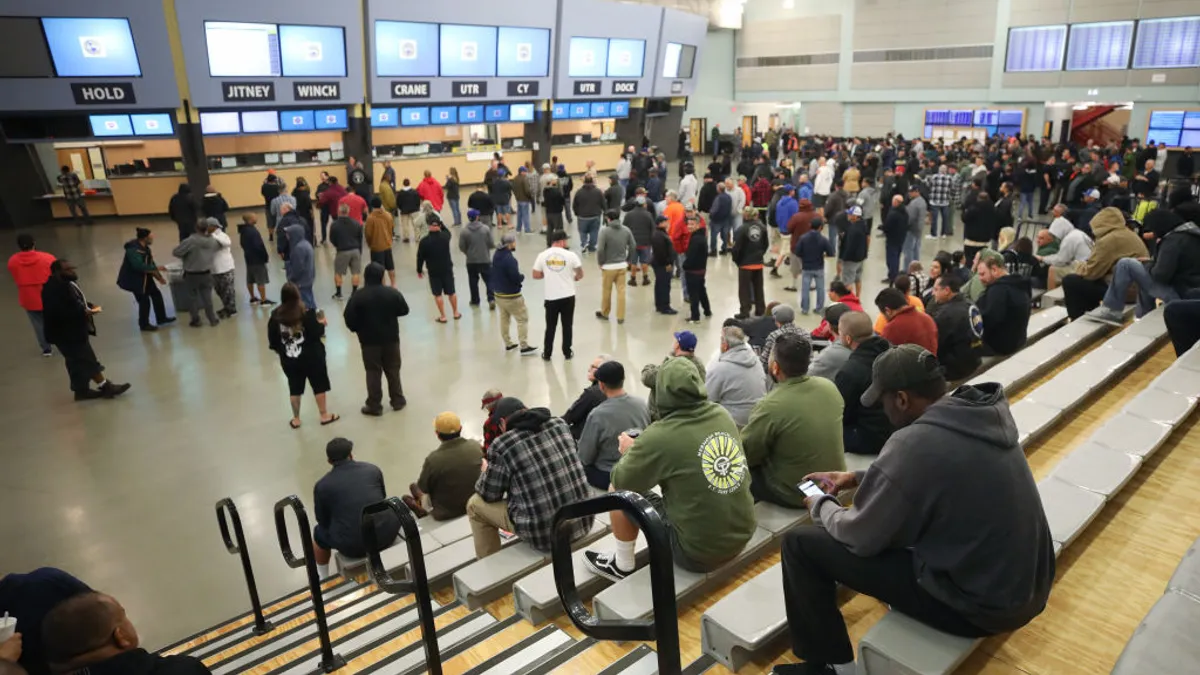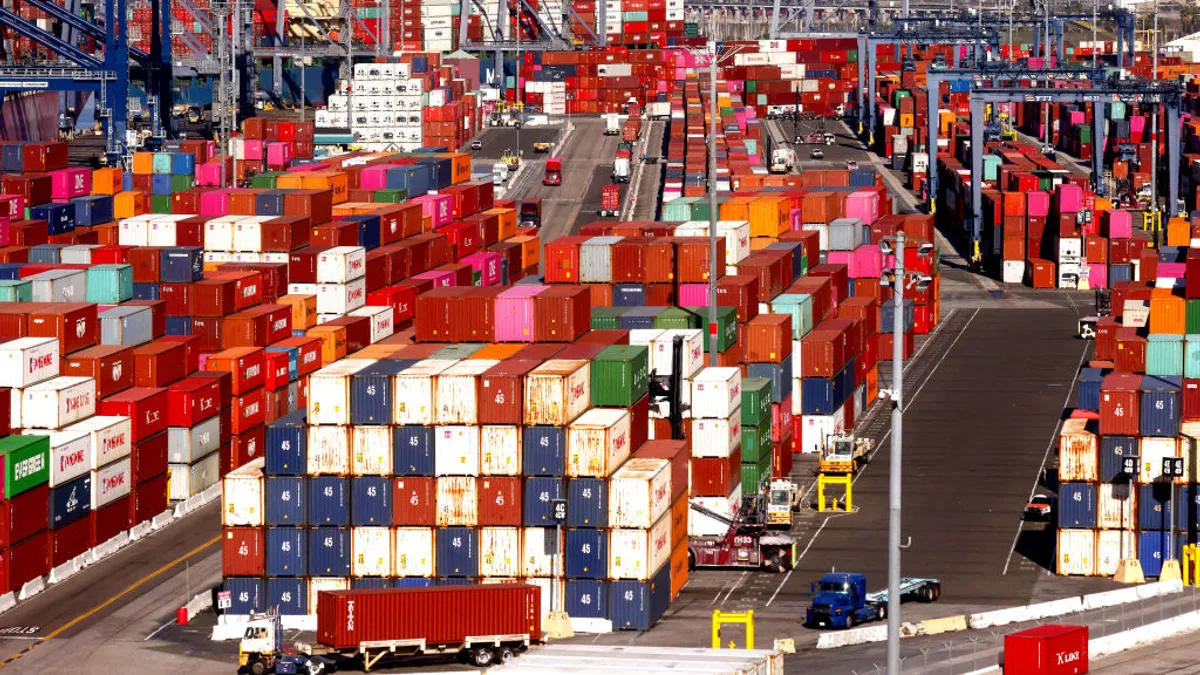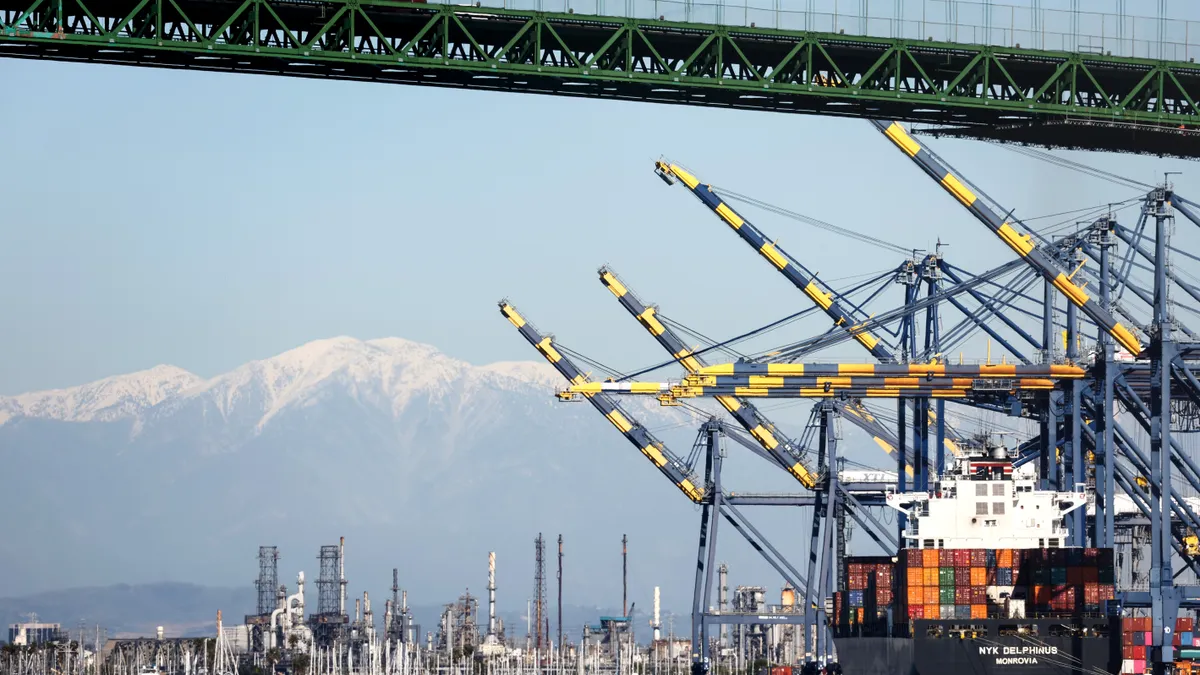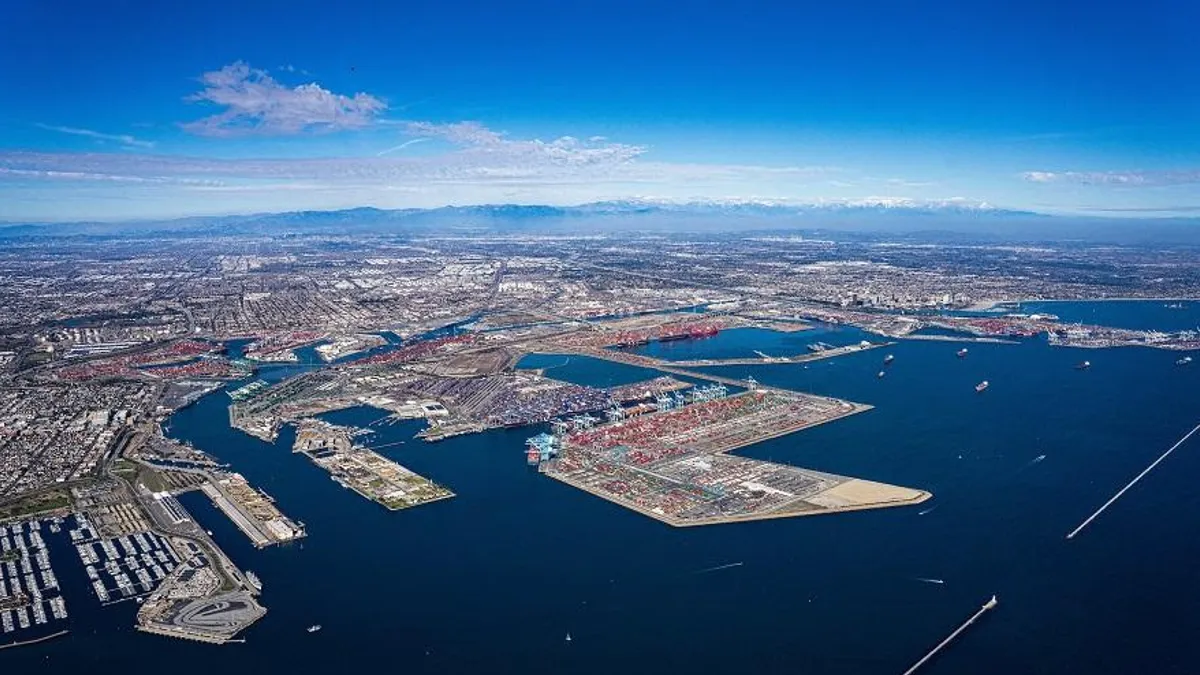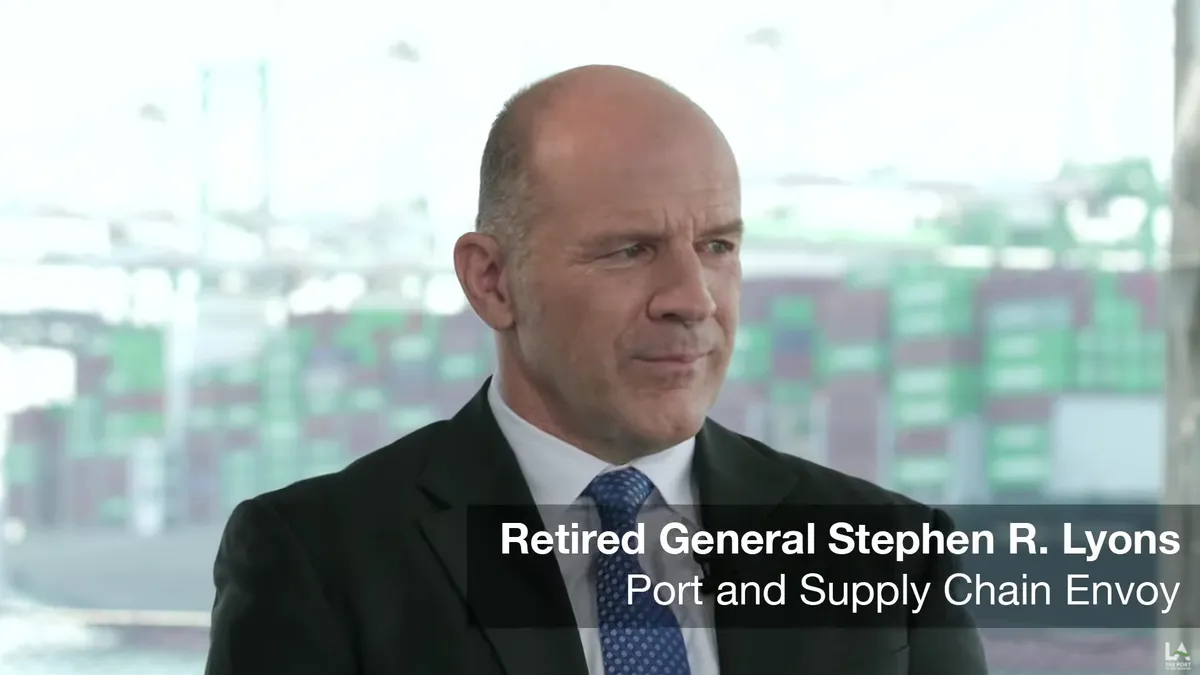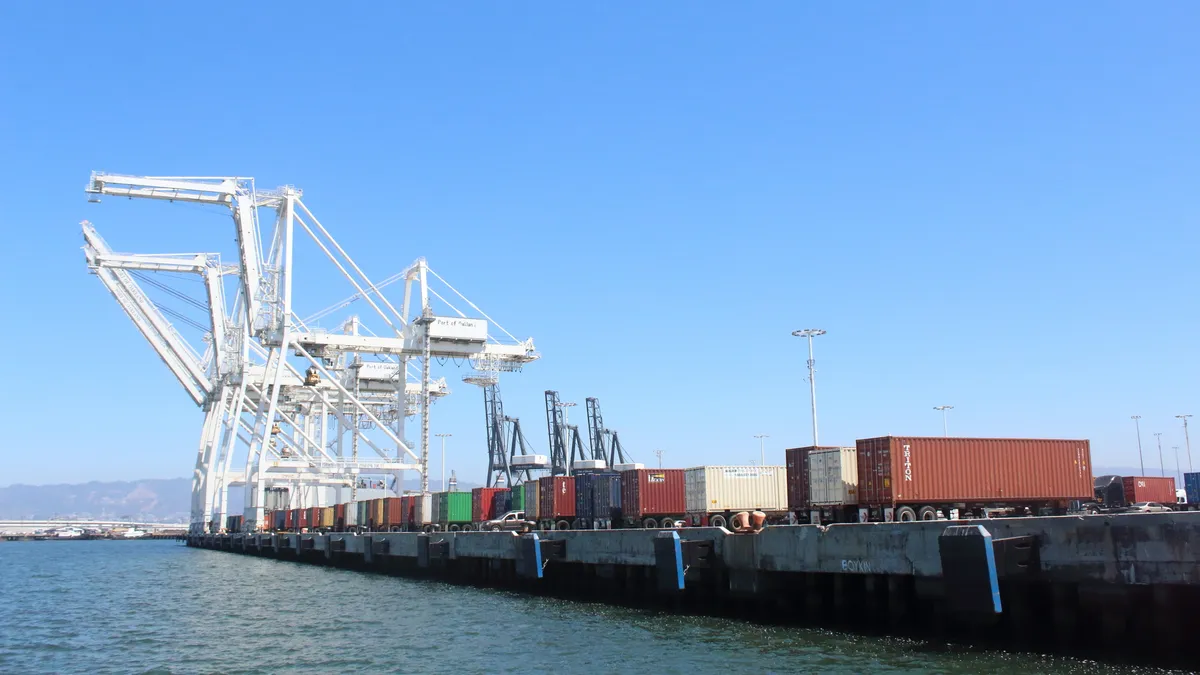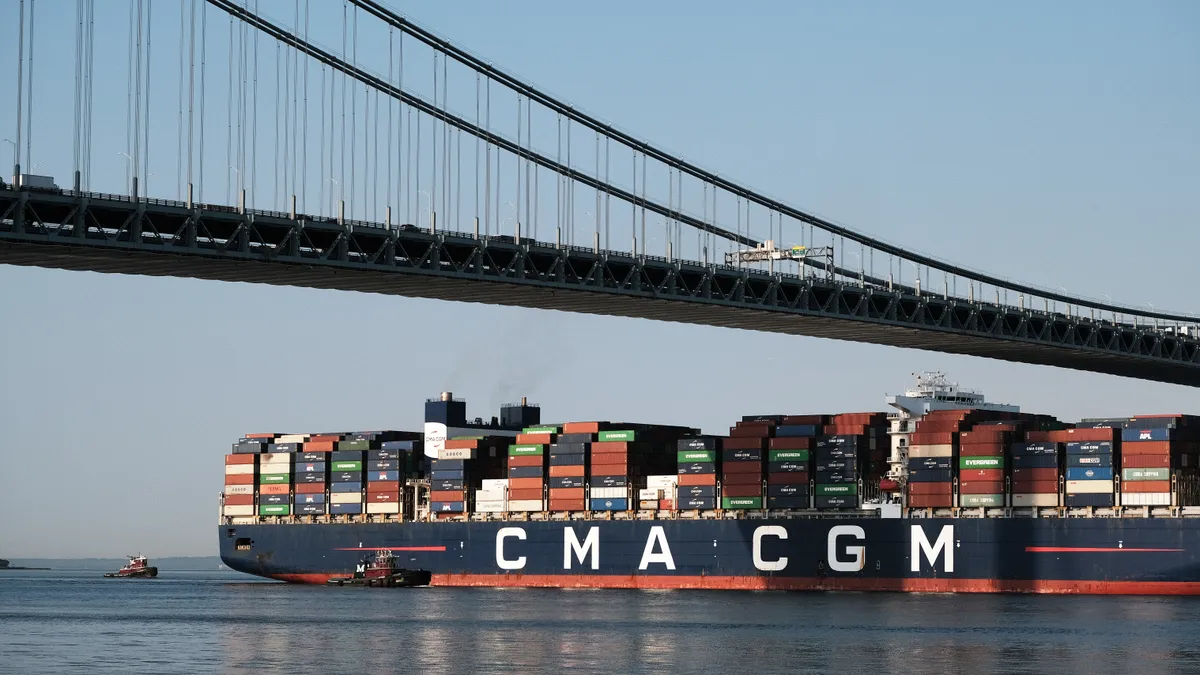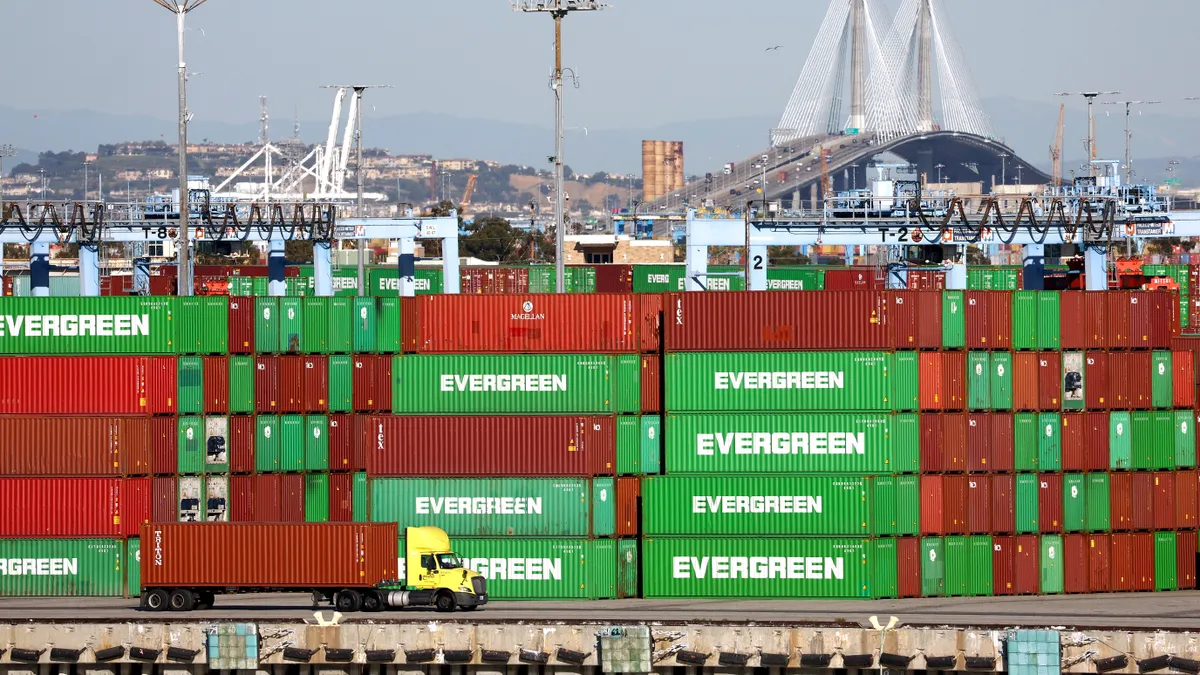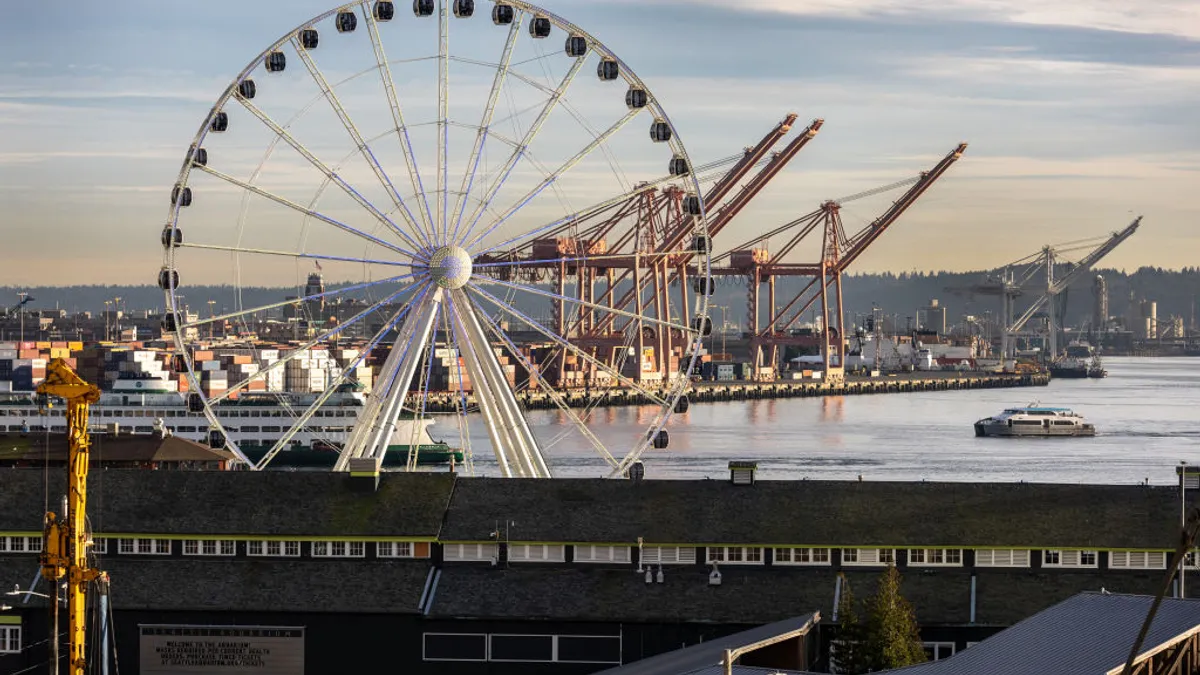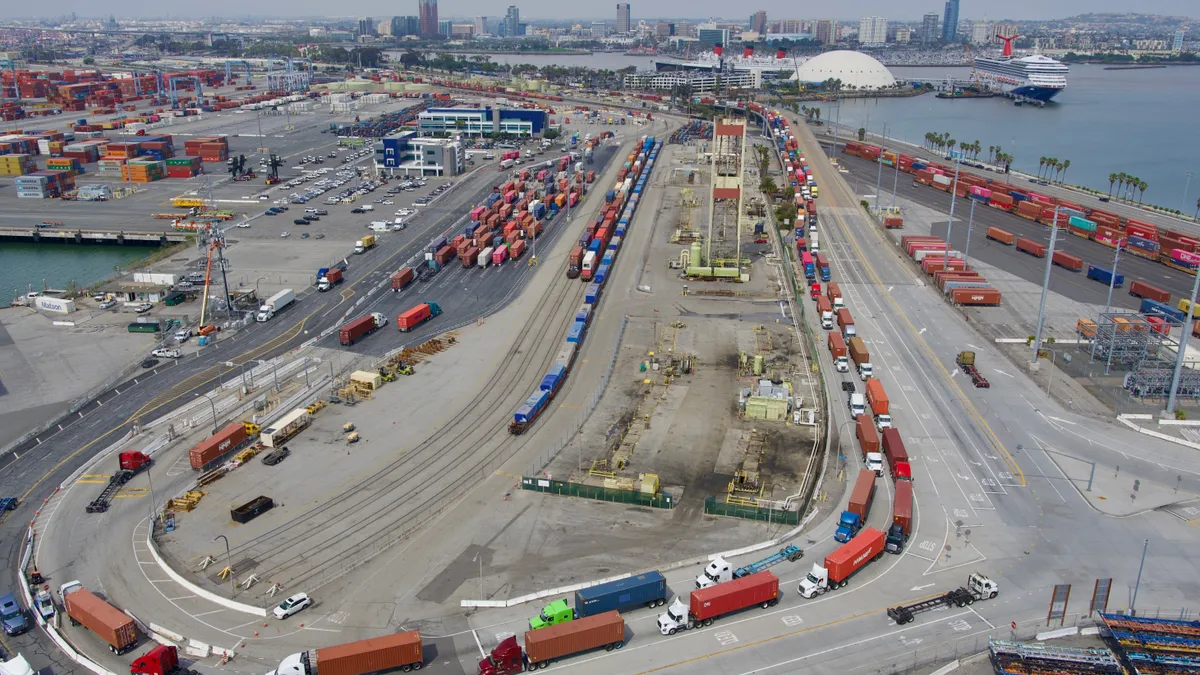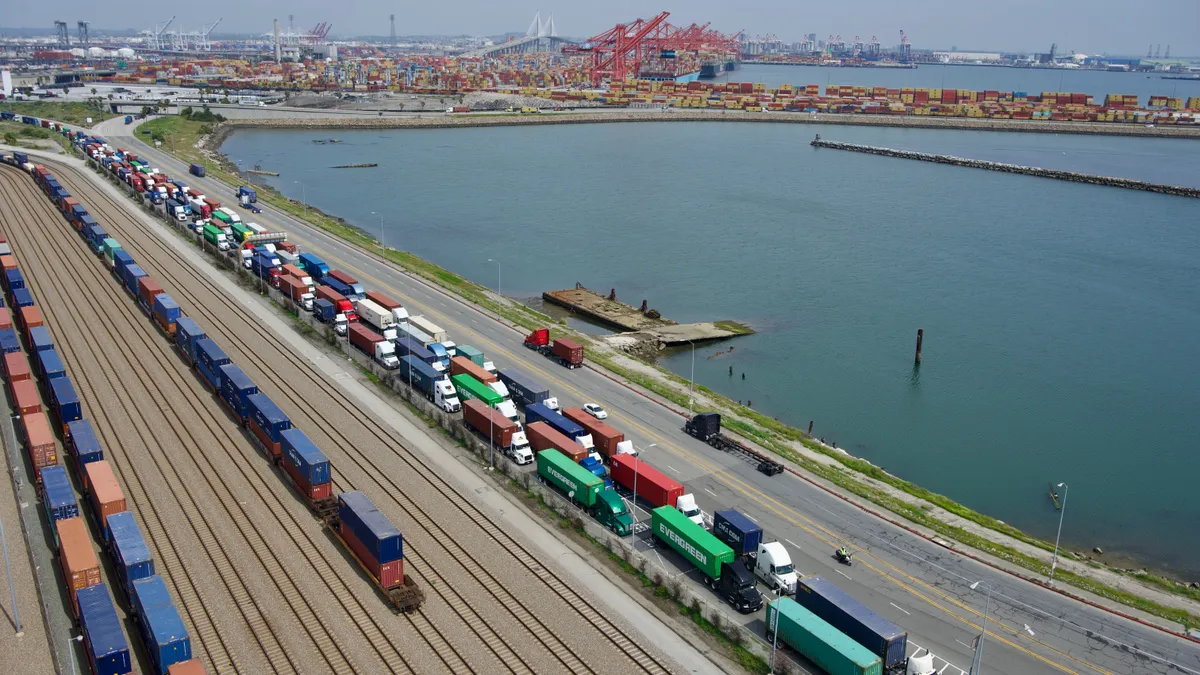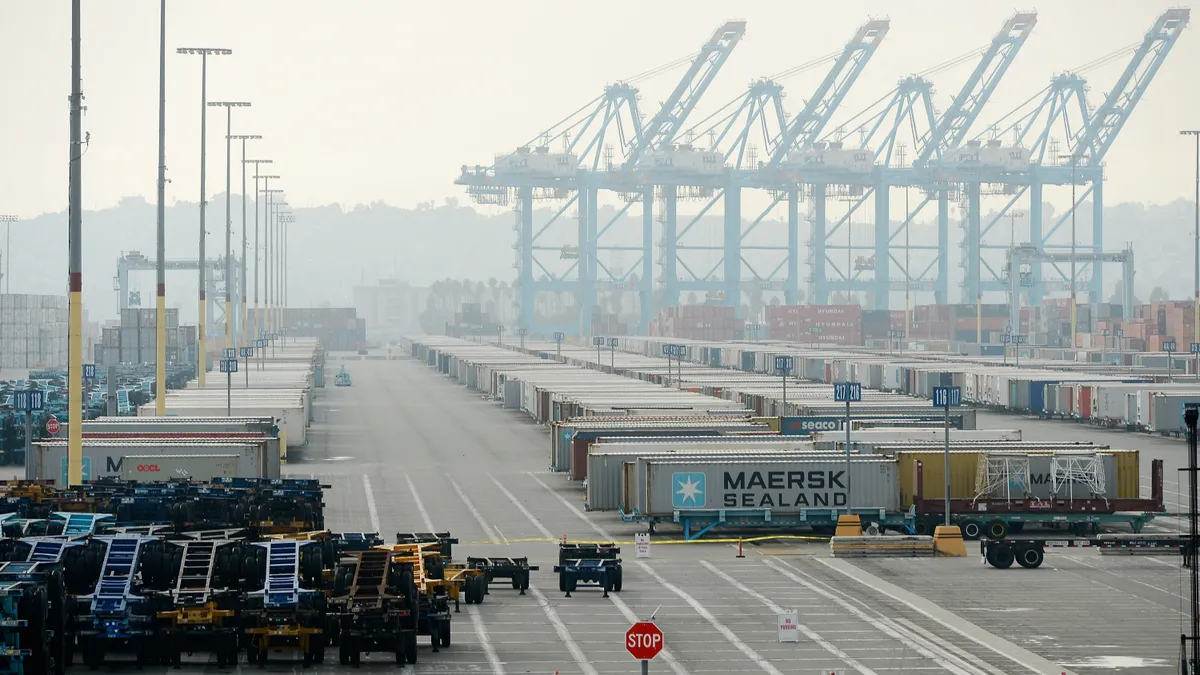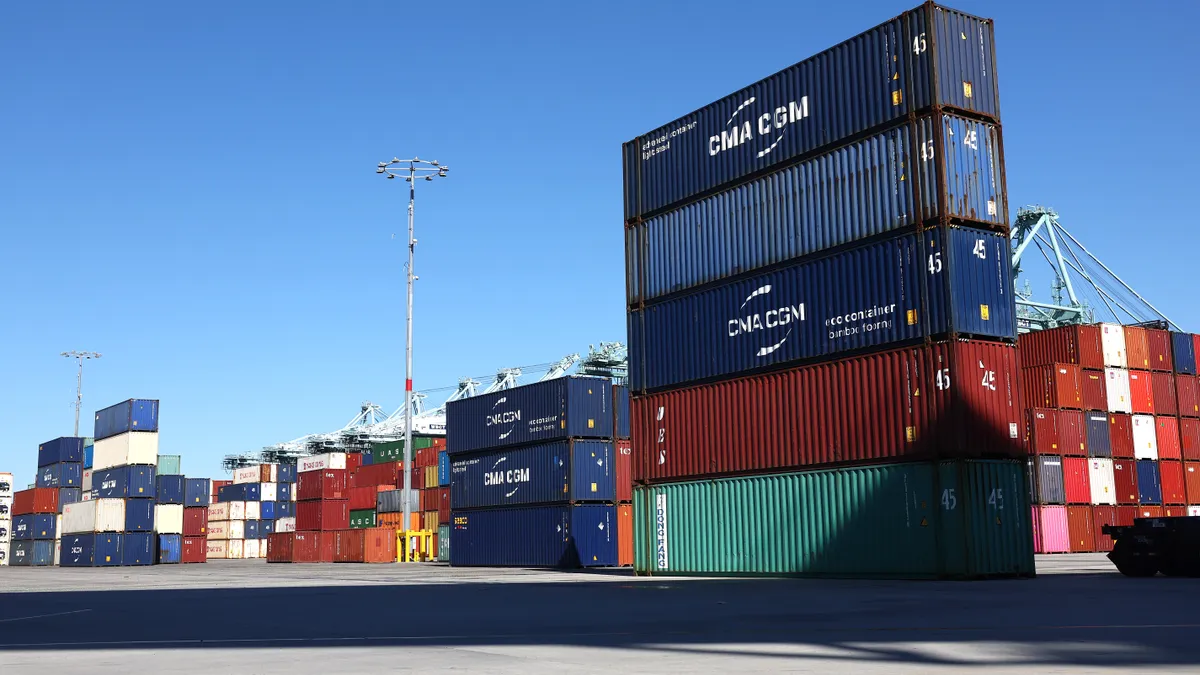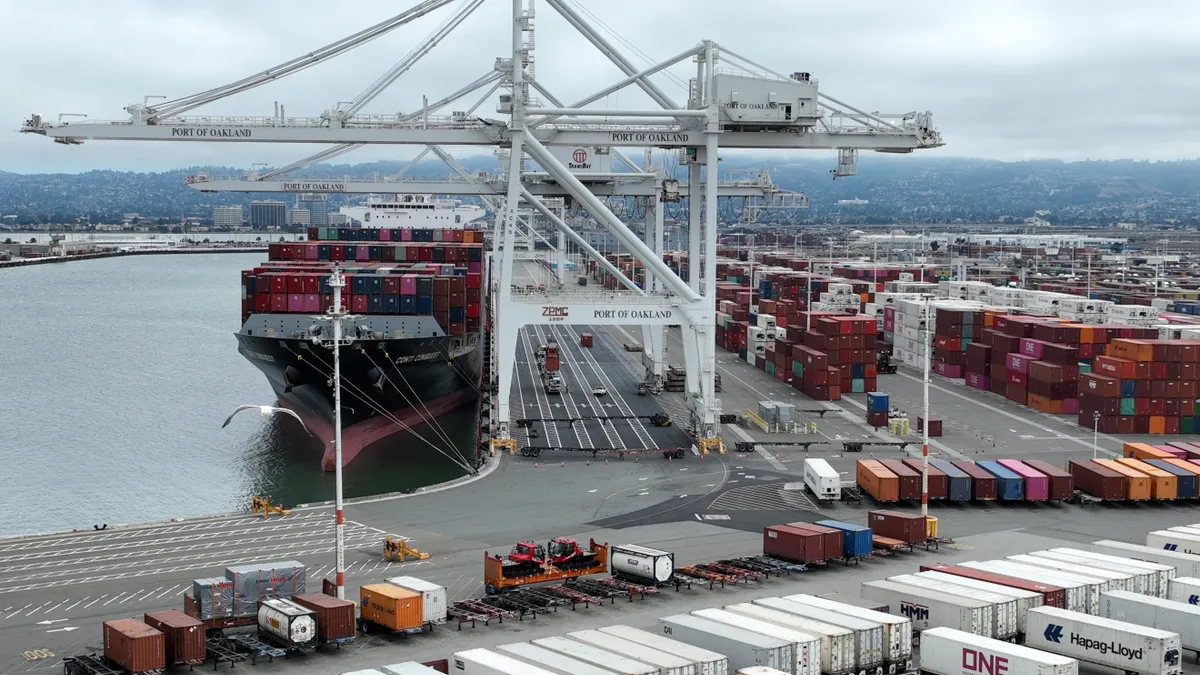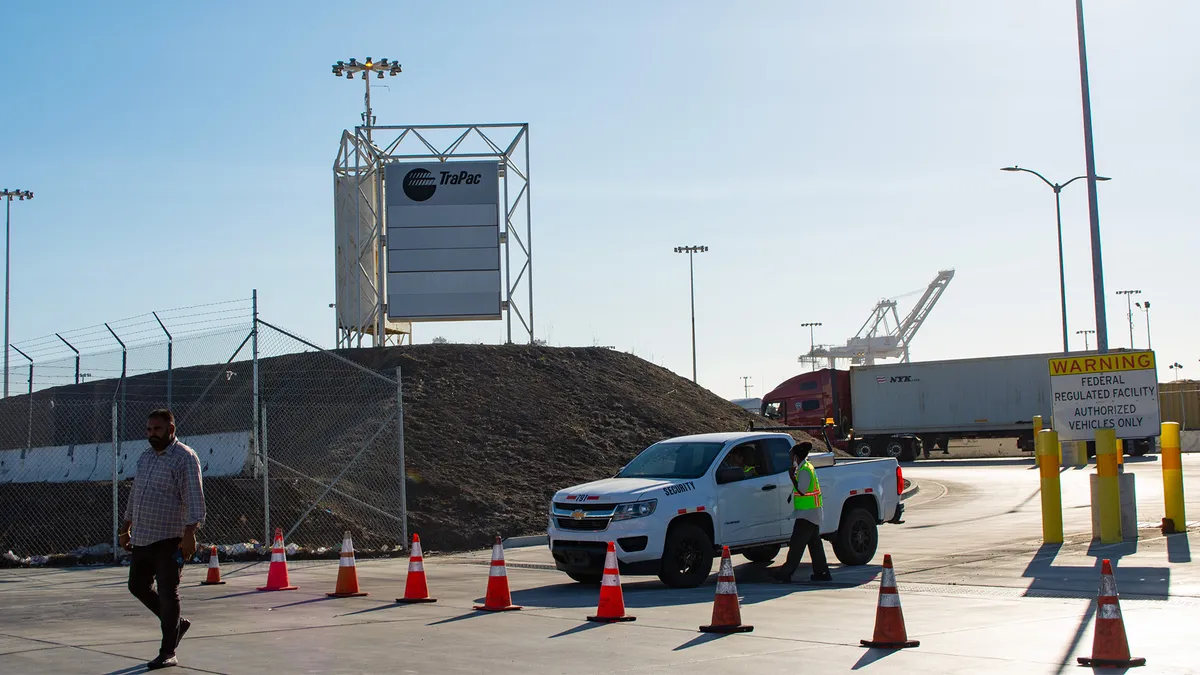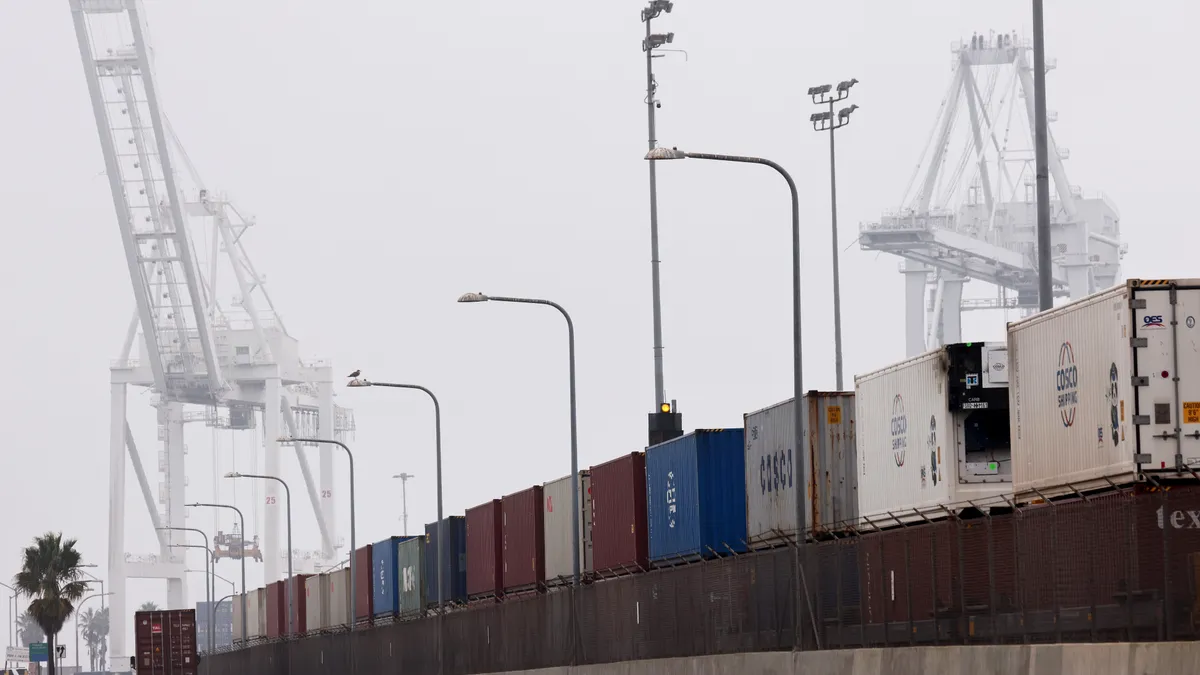It's official: The International Longshore and Warehouse Union will begin its long-anticipated contract negotiations with the Pacific Maritime Association on May 10.
Many shippers were nervously awaiting this moment. After all, the two parties involved represent many of the companies and workers that keep West Coast ports running. If, like in the past, contract disagreements were to cause disruptions — supply chains could slow down further, too.
Leaders from both the ILWU and PMA have so far downplayed those fears.
"Talks are scheduled to continue on a daily basis until an agreement is reached," the two parties said in a joint press release Monday. "Both sides say they expect cargo to keep moving until an agreement is reached."
The message of mutual cooperation is one the two groups have consistently emphasized as they set the stage for contract negotiations. During subsequent appearances at the Port of Los Angeles’ monthly media briefings in April and May, officials from both the ILWU and PMA emphasized their optimism in the negotiations, noting the trials of the COVID-19 pandemic had helped cement a cooperative relationship. And while each side expressed confidence in reaching a deal, they also came short of guaranteeing the talks would conclude before the current contract expires at 5 p.m. on July 1, 2022.
“I expect the contract negotiation to go past July 1, they always do,” PMA CEO Jim McKenna said during the May media briefing. The ILWU confirmed similar expectations in an email.
‘We need to stay at the table’
For McKenna, how long the talks last is not the issue. “It’s just, we need to stay at the table and get an agreement without causing any further disruptions.”
The time and disruptions involved in previous contract negotiations have widely varied. In 2002, talks were extended for almost three months past the July 1 contract expiry date and an impasse led ports to shut down before a deal was reached. The 2008 talks, meanwhile, caused “little to no disruption” and lasted for three weeks past expiry, McKenna said.
During the most recent round of bargaining in 2014, negotiations prolonged for eight months beyond expiry and featured work slowdowns.
"Each contract is different. [You can't] decide them on the front end," McKenna said. "Again, I think everybody is optimistic going into this one that we're gonna get to where we need."
During the April media briefing, ILWU leaders struck a similar tone, highlighting the two parties’ recent record of contract revisions as an example of their ability to negotiate details without disruption to supply chains.
“If people just look [at] what we’ve done over the last past few years, we sat down and collectively bargained agreements to get through COVID,” said Frank Ponce De Leon, ILWU Coast Committeeman. “We didn’t close any of our ports up and down the whole West Coast.”
What will the parties discuss?
Days away from the first official meeting between the two sides, reports, open letters and public comments laid out a list of topics the ILWU and PMA need to address.
The PMA website indicates the employers' association is entering the negotiation with five goals: avoiding work disruptions; continuing to offer "world-class benefits"; prioritizing safety and training; "modernizing" terminals through densification and automation; and preparing to meet "stringent" environmental regulations.
On Friday, ILWU International President Willie Adams made parts of the union's negotiating position clear through an open letter, which was emailed to Supply Chain Dive. In it, Adams cited the need for a deal that protects both workers and the economy, but decried efforts to automate marine terminals.
"To strengthen America's economy, it's not enough for ports to hold the best economic cards," Adams wrote. "They have to play them in ways that help the American workers who make, grow, and move the things we need for our lives."
“I think we're going in with that spirit of cooperation."

Jim McKenna
CEO, Pacific Maritime Association
Of the five principles outlined for negotiation by the PMA, automation drew particular attention late last week.
On Thursday, the employers' association released a report outlining the benefits of marine terminal automation. The report cites two terminals at the Los Angeles and Long Beach ports as case studies of how the technology could affect volume and jobs. The terminals' use of automation starting in 2015 helped the ports stay competitive and drew in cargo volumes. And as cargo volumes rose, so did labor hours.
The ILWU did not delay in countering the report. By Friday, the union had emailed out a statement arguing automation had cost jobs and efficiency at the overall San Pedro Bay port complex.
"We've seen more container volume, not more speed at the automated ports," Ponce De Leon said. "This shift is due to shipping alliances diverting more cargo to automated terminals, leaving unused capacity at other terminals during a time when the ports have been congested and need every terminal to be as productive as possible."
At the Port of Los Angeles media briefing Friday, McKenna stood by the push for automation, saying it helps terminals achieve higher throughput, stay competitive and meet emissions standards.
But he also noted it's not the first time the two parties have discussed automation. And though such topics are always tough to discuss, hours, wages and working conditions would remain at the forefront of negotiations.
“I think we're going in with that spirit of cooperation," McKenna said. "But until you get to the table, until you see the demands that come across and the proposals that go across … you're really at a wait and see moment in time.”



